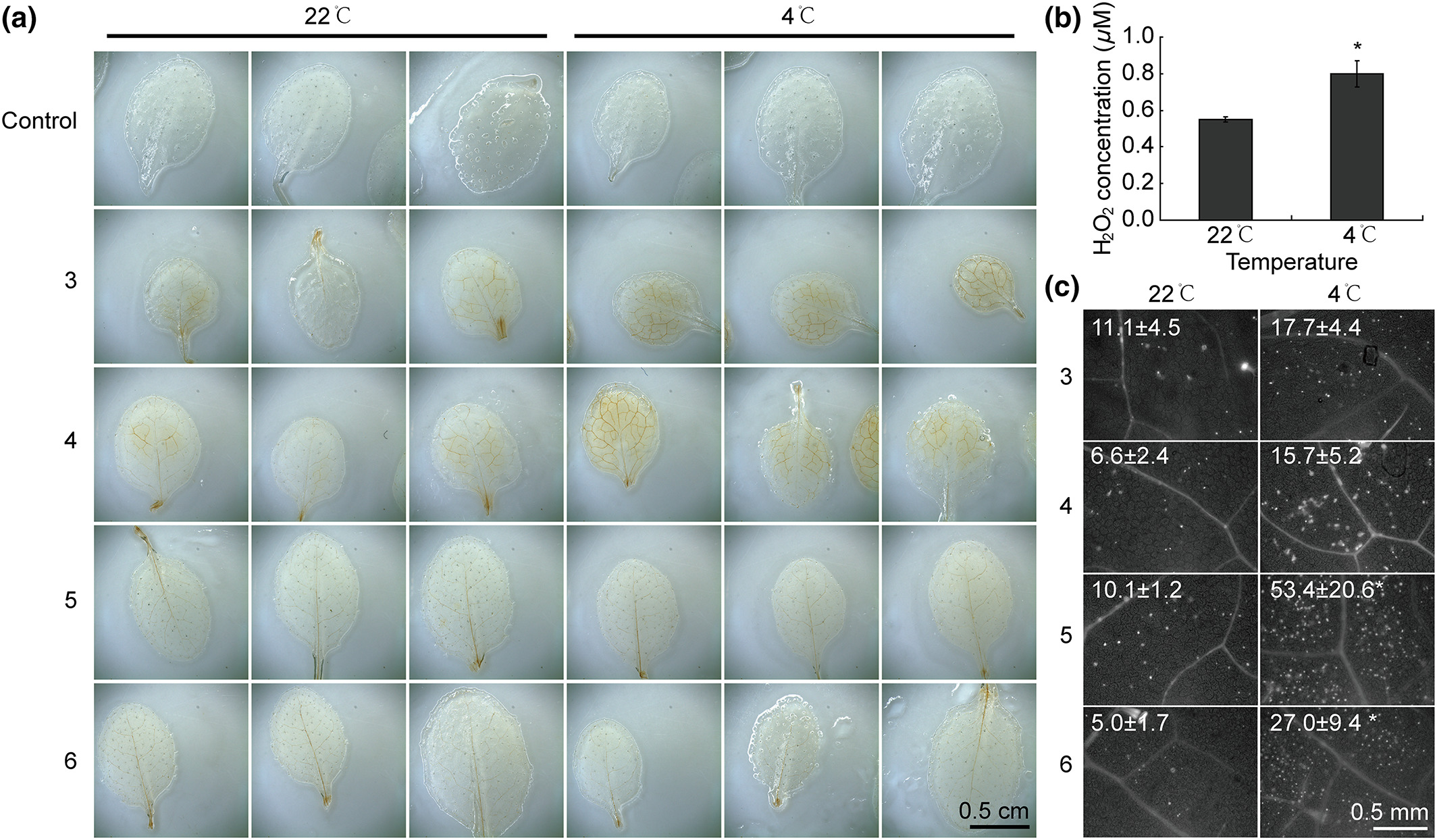Authors: Zhenjiang Wu, Shiming Han, Hedan Zhou, Za Khai Tuang, Yizhong Wang, Ye Jin, Huazhong Shi, Wannian Yang
Abstract
Exposure to short-term cold stress influences disease resistance by mechanisms that remain poorly characterized. The molecular basis of cold-activated immunity was therefore investigated in Arabidopsis thaliana inoculated with the bacterial pathogen Pst DC3000, using a transcriptomic analysis. Exposure to cold stress for 10 hr was sufficient to activate immunity, as well as H2 O2 accumulation and callose deposition. Transcriptome changes induced by the 10-hr cold treatment were similar to those caused by pathogen infection, including increased expression of the salicylic acid (SA) pathway marker genes, PR2 and PR5, and genes playing positive roles in defence against (hemi)-biotrophs. In contrast, transcripts encoding jasmonic acid (JA) pathway markers such as PR4 and MYC2 and transcripts with positive roles in defence against necrotrophs were less abundant following the 10-hr cold treatment. Cold-activated immunity was dependent on SA, being partially dependent on NPR1 and ICS1/SID2. In addition, transcripts encoding SA biosynthesis enzymes such as ICS2, PAL1, PAL2, and PAL4 (but not ICS1/SID2) and MES9 were more abundant, whereas GH3.5/WES1 and SOT12 transcripts that encode components involved in SA modification were less abundant following cold stress treatment. These findings show that cold stress cross-activates innate immune responses via a SA-dependent pathway.
Keywords: Arabidopsis thaliana; JA; PR2; PR5; Pst DC3000; SA; cold stress; disease resistance; immunity; transcriptomic analysis.
Read the full article here.
